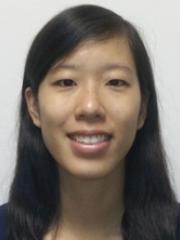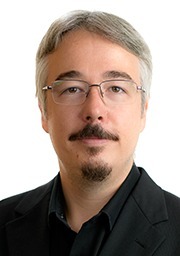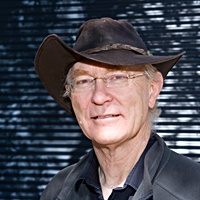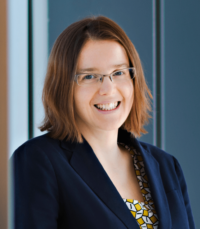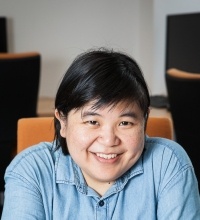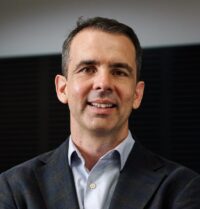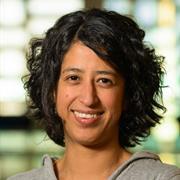-

Peter Corke
Queensland University of Technology
Peter Corke is a robotics researcher and educator. He is a Distinguished Professor at Queensland University of Technology and Director of the QUT Centre for Robotics. He was also the Director of the ARC Centre for Robotic Vision between 2014 – 2021. His research is concerned with enabling robots to see, and the application of robots to mining, agriculture and environmental monitoring. He created widely used open-source software for teaching and research, wrote the best selling textbook “Robotics, Vision, and Control”, created several MOOCs and the Robot Academy, and has won national and international recognition for teaching including 2017 Australian University Teacher of the Year. He is a fellow of the IEEE, the Australian Academy of Technology and Engineering, the Australian Academy of Science; former editor-in-chief of the IEEE Robotics & Automation magazine; founding editor of the Journal of Field Robotics; founding multi-media editor and executive editorial board member of the International Journal of Robotics Research; member of the editorial advisory board of the Springer Tracts on Advanced Robotics series; recipient of the Qantas/Rolls-Royce and Australian Engineering Excellence awards; and has held visiting positions at Oxford, University of Illinois, Carnegie-Mellon University and University of Pennsylvania. He received his undergraduate and masters degrees in electrical engineering and PhD from the University of Melbourne.
-

Jen Jen Chung
University of Queensland
Jen Jen Chung is an Associate Professor in Mechatronics within the School of Information Technology and Electrical Engineering at The University of Queensland. Her current research interests include perception, planning and learning for robotic mobile manipulation, algorithms for robot navigation through human crowds, informative path planning and adaptive sampling. Prior to working at UQ, Jen Jen was a Senior Researcher in the Autonomous Systems Lab (ASL) at ETH Zürich from 2018-2022 and was a Postdoctoral Scholar at Oregon State University researching multiagent learning methods from 2014-2017. She completed her Ph.D. on information-based exploration-exploitation strategies for autonomous soaring platforms at the Australian Centre for Field Robotics in the University of Sydney. She received her Ph.D. (2014) and B.E. (2010) from the University of Sydney.
-

Donald Dansereau
University of Sydney
Dr Donald Dansereau is a senior lecturer in the School of Aerospace, Mechanical and Mechatronic Engineering, and the Perception Theme Lead for the Sydney Institute for Robotics and Intelligent Systems. His work explores how new imaging devices can help robots see and do, encompassing the design, fabrication, and deployment of new imaging technologies. In 2004 he completed an MSc at the University Calgary, receiving the Governor General’s Gold Medal for his pioneering work in light field processing. In 2014 he completed a PhD on underwater robotic vision at the Australian Centre for Field Robotics, followed by postdoctoral appointments at QUT and Stanford University. Donald’s industry experience includes physics engines for video games, computer vision for microchip packaging, and chip design for automated electronics testing.
-

Stephen Gould
Australian National University
Stephen Gould is a Professor of Computer Science at the Australian National University. He is a former ARC Postdoctoral Fellow and Microsoft Faculty Fellow, and is a Contributed Researcher to the Data61 Machine Learning group and a Chief Investigator with the Australian Research Council Centre of Excellence in Robotic Vision. Stephen received his BSc degree in mathematics and computer science and BE degree in electrical engineering from the University of Sydney in 1994 and 1996, respectively. He received his MS degree in electrical engineering from Stanford University in 1998. He then worked in industry for a number of years where he co-founded Sensory Networks, which sold to Intel in 2013. In 2005 he returned to PhD studies and earned his PhD degree in Electrical Engineering from Stanford University in 2010. Stephen has broad interests in the areas of computer and robotic vision, machine learning, probabilistic graphical models, and optimization. His main research focus is on automatic semantic and geometric understanding of images and videos.
-

Richard Hartley
Australian National University
Richard Hartley is an Emeritus Professor with the ANU College of Engineering, Computing and Cybernetics. Richard is renowned as one of the founders of the field of multi-view geometry in computer vision – his text has received over 28,000 citations. Richard has been ANU since January 2001. He was also the Program Leader for the Autonomous Systems and Sensor Technology Program of NICTA. Richard worked at the General Electric Research and Development Center from 1985 to 2001, where he became involved with Image Understanding and Scene Reconstruction working with GE’s Simulation and Control Systems Division. This division built large-scale flight-simulators. Professor Hartley’s projects in this area were in the construction of terrain models and texture mosaics from aerial and satellite imagery. From 1995 he was GE project leader for a shared-vision project with Lockheed-Martin involving design and implementation of algorithms for an AFIS (fingerprint analysis) system being developed under a Lockheed-Martin contract with the FBI. This involved work in feature extraction, interactive fingerprint editing and fingerprint database matching. In 2000, he co-authored (with Andrew Zisserman) a book for Cambridge University Press, summarizing the previous decade’s research in this area. (Over 60,000 citations and an h-index of 78).
-

Dana Kulic
Monash University
Professor Dana Kulić develops autonomous systems that can operate in concert with humans, using natural and intuitive interaction strategies while learning from user feedback to improve and individualise operation over long-term use. In collaboration with Professor Elizabeth Croft, she pioneered systems to quantify and control safety during HRI based on both robot and human perception. Working with Professor Yoshihiko Nakamura at the University of Tokyo, she developed one of the first systems to implement continuous learning from demonstration. The system was a first step towards robots that can learn from non-experts, as it did not require the demonstrator to segment or scaffold their demonstration. Her research in rehabilitation technology enables highly accurate, non-invasive, measurement of human movement, which can be deployed in industrial settings for accurate measurement of operator movement. She serves as the Global Innovation Research Visiting Professor at the Tokyo University of Agriculture and Technology, and the August-Wilhelm Scheer Visiting Professor at the Technical University of Munich. Before coming to Monash, Professor. Kulić established the Adaptive Systems Lab at the University of Waterloo, and collaborated with colleagues to establish Waterloo as one of Canada’s leading research centres in robotics. She is a co-Investigator of the Waterloo Robohub, the largest robotics experimental facility in Canada, and a co-Principal Investigator of the Natural Sciences and Engineering Research Council (NSERC) Canadian Robotics Network, Canada’s only federally funded network in robotics. She has led a number of large research projects and collaborations with industry and user groups, including a strategic project grant in collaborative assembly and multiple grants developing automation for rehabilitation.
-

Hanna Kurniawati
Australian National University
Hanna is a Professor at the School of Computing, Australian National University (ANU), and the SmartSat CRC Professorial Chair for System Autonomy, Intelligence, and Decision Making. She is the ANU Node Lead and the Planning & Control theme lead for the Australian Robotics Inspection and Asset Management (ARIAM) Hub. At ANU, she founded the Robot Decision Making group and was a deputy lead of the interdisciplinary research project Humanising Machine Intelligence. Hanna earned a PhD in Computer Science for work in Robot Motion Planning from National University of Singapore and a BSc in Computer Science from the University of Indonesia. After her PhD, she was a Postdoctoral Associate, and then a Research Scientist at the Singapore-MIT Alliance for Research and Technology, MIT. Hanna was a faculty member at the University of Queensland School of ITEE, before moving to ANU in 2019 to become a CS and ANU Futures Fellow. Hanna’s research interests span planning under uncertainty, robotics, robot motion planning, integrated planning and learning, and computational geometry applications. Specifically, she focuses on algorithms to enable robust decision theory to become practical software tools, with applications in robotics.
-

Simon Lucey
University of Adelaide
Simon Lucey (Ph.D.) is a professor in the School of Computer Science at the University of Adelaide, where he is the Director of the Australian Institute of Machine Learning (AIML). Prior to this he was an associate research professor at Carnegie Mellon University’s Robotics Institute (RI) in Pittsburgh USA. From 2017-2020, he was a principal scientist at the autonomous vehicle company Argo AI and spent time at the CSIRO (2009-2014). He has received various career awards including an ARC Future Fellowship (2009-2013). Simon’s research interests span computer vision, machine learning, and robotics. He enjoys drawing inspiration from AI researchers of the past to attempt to unlock computational and mathematic models that underlie the processes of visual perception.
-

Teresa Vidal-Calleja
University of Technology Sydney
Teresa Vidal-Calleja is a robotics expert focusing on enabling robots to be deployed in environments that are hazardous or difficult for people to access. An Associate Professor and Research Director at the Robotics Institute, School of Mechanical and Mechatronic Engineering at UTS, Teresa’s research interests include robotics perception, alternative sensing, inertial fusion, SLAM, continuous mapping, aerial and ground robots cooperation, autonomous navigation, automatic recognition, digital engineering, with applications in manufacturing, the meat and livestock sector, mining, and construction and logistics. As co-lead of Program 1 of the Australian Cobot Centre (ACC) an ARC Industry Transformation and Training Centre, she aims to help the manufacturing industry in the adoption of collaborative robots. In 2012, Teresa joined the Robotics Institute (formerly Centre for Autonomous Systems) at UTS where she was a UTS Chancellors Research Fellow and later Senior Lecturer. She has been a Visiting Scholar with the Active Vision Laboratory at the University of Oxford in the UK, and, more recently, with the Autonomous Systems Lab, ETH Zürich in Switzerland and the German Aerospace Center (DLR) in Germany. She received her B.Sc. degree in Mechanical Engineering from the National Autonomous University of Mexico, in 2000, an M.Sc. degree in Electrical Engineering (mechatronics options) from CINVESTAV-IPN, Mexico City, in 2002, and her Ph.D. degree in automatic control, computer vision, and robotics from the Polytechnic University of Catalonia, Barcelona, Spain, in 2007. She was a Postdoctoral Research Fellow at LAAS-CNRS, Toulouse, France, and at the Australian Centre for Field Robotics, at the University of Sydney. She is currently an IEEE Senior member, treasurer of the Australian Robotics and Automation Association and Associate Editor of IEEE Transactions on Robotics, IEEE Robotics and Automation Letters and Field Robotics Journal.
-

Previous International Speakers
2021
Hanna Kurniawati (Australian National University)
Gamini Dissanyake (University of Technology Sydney)
Fabio Ramos (University of Sydney)2020
Tobi Delbruck (ETH Zurich and The Institute of Neuroinformatics, Zurich)
Stefan Leutenegger (Imperial College London)
Donald Dansereau (University of Sydney)2019
Laura Leal-Taixé (Technical University of Munich)
Seth Hutchinson (Georgia Institute of Technology)
Jose Neira (University of Zaragoza)
Silvere Bonnabel (Mines ParisTech)
Tarek Hamel (University of Nice Sophia Antipolis)2018
Margarita Chli (ETH Zurich)
Vincent LePetit (University of Bordeaux)
Yarin Gal (University of Oxford)
Andrea Cherubini (University of Montpellier)2017
Davide Scaramuzza (University of Zurich)
Simon Lucey (Carnegie Mellon University)
Javier Civera (University of Zaragoza)
Sebastien Rougeaux (Seeing Machines)2016
Frank Dellaert (Georgia Institute of Technology)
Jana Kosecka (George Mason University)
Paul Newman (University of Oxford)2015
Raquel Urtasun (University of Toronto / Uber)
Andrew Davison (Imperial College London)
Fredrik Kahl (Chalmers University of Technology)
Lourdes De Agapito Vicente (University College London)

